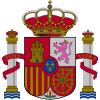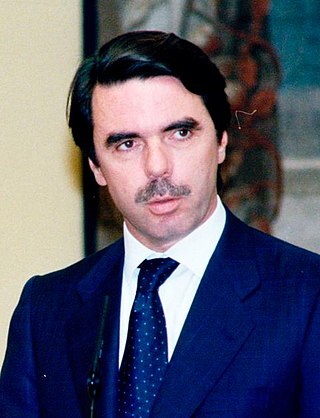
José María Alfredo Aznar López is a Spanish politician who was the prime minister of Spain from 1996 to 2004. He led the People's Party (PP), the dominant centre-right political party in Spain.

The prime minister of Spain, officially president of the Government, is the head of government of Spain. The office was established in its current form by the Constitution of 1978 and it was first regulated in 1823 as a chairmanship of the extant Council of Ministers, although it is not possible to determine when it actually originated.

The Spanish Socialist Workers' Party is a social-democratic political party in Spain. The PSOE has been in government longer than any other political party in modern democratic Spain: from 1982 to 1996 under Felipe González, from 2004 to 2011 under José Luis Rodríguez Zapatero, and since 2018 under Pedro Sánchez.

The Communist Party of Spain is a communist party that, since 1986, has been part of the United Left coalition, which is part of Unidas Podemos. It currently has two of its politicians serving as government ministers in the Spanish government, in the roles of Minister of Labour and Social Economy and Minister of Consumer Affairs respectively.

The People's Party is a conservative and Christian-democratic political party in Spain.
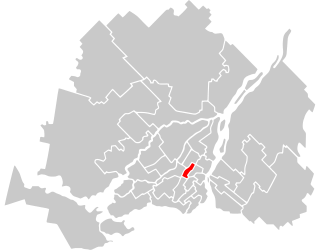
Papineau is a federal electoral district in Montreal, Quebec, Canada, that has been represented in the House of Commons of Canada since 1948. Its population in 2016 was 110,750. Justin Trudeau, the Prime Minister of Canada and Leader of the Liberal Party, has represented the riding since the 2008 federal election. Trudeau became Liberal leader in a 2013 leadership election, succeeding Bob Rae, and prime minister when the Liberals returned to government in the 2015 Canadian federal election, succeeding Conservative leader Stephen Harper.

Elections in Spain encompass four different types: general elections, regional elections, local elections, and elections to the European Parliament. General elections and regional elections are typically conducted at the conclusion of the national or regional legislative mandate, which usually spans four years since the previous election. However, early elections can be called in certain circumstances. On the other hand, local council elections and elections to the European Parliament follow fixed dates, although some local government bodies, such as provincial councils, are not directly elected. In most elections, a party-list proportional representation (PR) system is employed, while the Senate utilizes the plurality system.

The Spanish transition to democracy, known in Spain as la Transición or la Transición española, is a period of modern Spanish history encompassing the regime change that moved from the Francoist dictatorship to the consolidation of a parliamentary system, in the form of constitutional monarchy under Juan Carlos I.

The Spanish Republic, commonly known as the Second Spanish Republic, was the form of government in Spain from 1931 to 1939. The Republic was proclaimed on 14 April 1931, after the deposition of King Alfonso XIII, and was dissolved on 1 April 1939 after surrendering in the Spanish Civil War to the Nationalists led by General Francisco Franco.
The Regionalist Party of Cantabria is the second oldest political party in the Spanish Autonomous Community of Cantabria. The PRC originated in the Association in Defense of the Interests of Cantabria (ADIC), founded on 14 May 1976, with the objective of promoting Cantabrian autonomy.

The 2008 Puerto Rican general elections were held on Tuesday, November 4, 2008, to elect the officials of the Government of Puerto Rico that would serve for the next four years, most notably the Governor of Puerto Rico.

The 2008 Spanish general election was held on Sunday, 9 March 2008, to elect the 9th Cortes Generales of the Kingdom of Spain. All 350 seats in the Congress of Deputies were up for election, as well as 208 of 264 seats in the Senate.
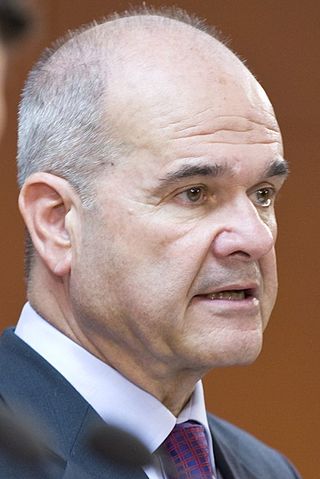
The 2008 Andalusian regional election was held on Sunday, 9 March 2008, to elect the 8th Parliament of the autonomous community of Andalusia. All 109 seats in the Parliament were up for election. The election was held simultaneously with the 2008 Spanish general election.

José Luis Rodríguez Zapatero is a Spanish politician and member of the Spanish Socialist Workers' Party (PSOE). He was the Prime Minister of Spain being elected for two terms, in the 2004 and 2008 general elections. On 2 April 2011 he announced he would not stand for re-election in the 2011 general election and left office on 21 December 2011.
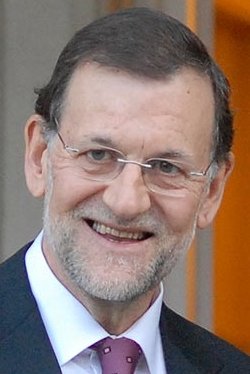
The 2011 Spanish general election was held on Sunday, 20 November 2011, to elect the 10th Cortes Generales of the Kingdom of Spain. All 350 seats in the Congress of Deputies were up for election, as well as 208 of 266 seats in the Senate. An election had not been due until April 2012 at latest, but a call by Prime Minister José Luis Rodríguez Zapatero for a snap election five months ahead of schedule was announced on 29 July 2011. Zapatero would not be seeking a third term in office, and with political pressure mounting, a deteriorating economic situation and his political project exhausted, an early election was perceived as the only way out.

The 2015 Spanish general election was held on Sunday, 20 December 2015, to elect the 11th Cortes Generales of the Kingdom of Spain. All 350 seats in the Congress of Deputies were up for election, as well as 208 of 266 seats in the Senate. At exactly four years and one month since the previous general election, this remains the longest timespan between two general elections since the Spanish transition to democracy, and the only time in Spain a general election has been held on the latest possible date allowed under law.

Pedro Sánchez Pérez-Castejón is a Spanish politician who has been Prime Minister of Spain since June 2018. He has also been Secretary-General of the Spanish Socialist Workers' Party (PSOE) since June 2017, having previously held that office from 2014 to 2016. Moreover, Sánchez is the current President of the Socialist International, having been elected to that position in November 2022.

This is the results breakdown of the Congress of Deputies election held in Spain on 9 March 2008. The following tables show detailed results in each of the country's 17 autonomous communities and in the autonomous cities of Ceuta and Melilla, as well as a summary of constituency and regional results.

The April 2019 Spanish general election was held on Sunday, 28 April 2019, to elect the 13th Cortes Generales of the Kingdom of Spain. All 350 seats in the Congress of Deputies were up for election, as well as 208 of 266 seats in the Senate.

The 2023 Spanish general election was held on Sunday, 23 July 2023, to elect the 15th Cortes Generales of the Kingdom of Spain. All 350 seats in the Congress of Deputies were up for election, as well as 208 of 265 seats in the Senate.
